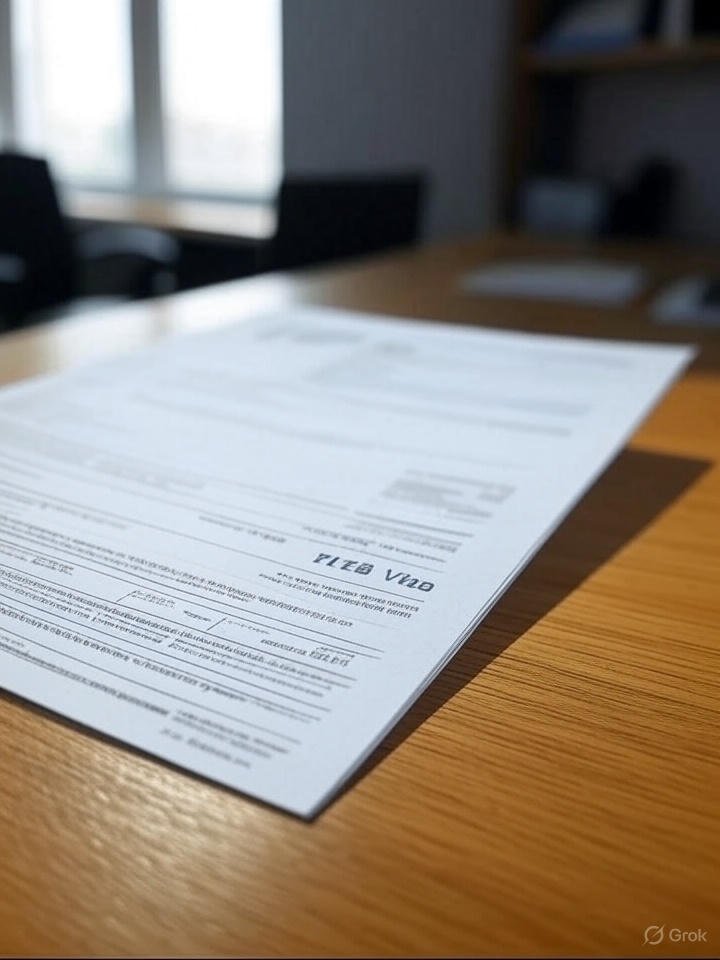Scholarships for African students to study abroad 2025 are your ticket to pursuing world-class education at universities like Harvard, Oxford, or Sydney without financial stress. Imagine studying engineering, medicine, or public policy in a global hub, with tuition, living costs, and travel fully or partially covered. These scholarships are competitive but achievable with the right strategy. This guide explores the top scholarships for African students in 2025, offering practical steps, insider tips, and a success story to help you secure funding for your international education.
Why Study Abroad?
Studying abroad offers African students access to cutting-edge programs, global networks, and career opportunities. According to UNESCO, over 6 million students studied abroad in 2023, with African students increasingly seeking international education. Countries like the USA, UK, Canada, and Australia provide diverse academic environments and post-study work options.
Tuition and living costs can exceed $30,000 annually, making scholarships essential for African students from countries like Nigeria, Kenya, or Ghana. These awards empower you to gain skills and drive change in your home country.
Advertisements
You have been blocked from seeing ads.
';
endif;
?>
What Are Scholarships for African Students?
Scholarships for African students are funded by governments, universities, NGOs, and international organizations. They may be merit-based (for academic or leadership excellence), need-based (for financial hardship), or region-specific (e.g., targeting Sub-Saharan Africa). Many are fully funded, covering tuition, living stipends, travel, and insurance, while others offer partial support. In 2025, global institutions are prioritizing African talent to foster development and diversity.
Understanding the scholarship landscape is key to finding opportunities that match your goals.
Top Scholarships for African Students in 2025
Here’s a curated list of prominent scholarships for African students to study abroad in 2025. Each has unique criteria, so tailor your application to stand out.
Mastercard Foundation Scholars Program
This program partners with universities like UBC (Canada), Sciences Po (France), and the University of Edinburgh (UK), offering fully funded scholarships for African undergraduates and master’s students, covering tuition, living expenses, and travel.
- Eligibility: Sub-Saharan African students with strong academics, financial need, and leadership potential.
- Application Tip: Highlight community projects, like education or health initiatives, in your essays.
- Deadline: Varies by university, typically December 2025; check partner websites.
Chevening Scholarships (UK)
Funded by the UK government, Chevening supports one-year master’s degrees for African students, covering tuition, living costs, and airfare.
- Eligibility: Two years of work experience, a bachelor’s degree, and a commitment to return home post-study.
- Unique Feature: Includes leadership training and global networking.
- Success Story: Chidi, a Nigerian data scientist, won a Chevening scholarship in 2023 to study at UCL. His essays about using AI to improve Nigeria’s agriculture secured the award, and he’s now consulting for a UK tech firm.
Fulbright Foreign Student Program (USA)
This U.S. government program funds graduate students from African countries, covering tuition, living expenses, airfare, and health insurance for master’s or PhD programs.
- Eligibility: Bachelor’s degree, strong academic record, and country-specific requirements.
- Application Tip: Emphasize cross-cultural impact, like community development projects.
Australia Awards Scholarships
These Australian government scholarships support African students from eligible countries for undergraduate or postgraduate studies, covering full tuition, living costs, and travel.
- Eligibility: Citizens of countries like Ghana, Kenya, or Nigeria with strong academics.
- Application Tip: Highlight your commitment to Africa’s development.
Disclaimer: Scholarship availability, amounts, and criteria may change. Verify details on official program or university websites.
How to Find Scholarships for African Students
Discovering scholarships requires proactive research. Here’s how to start:
- University Websites: Check financial aid pages of top schools like Stanford, UCL, or Melbourne for African-specific awards.
- Government Programs: Explore Fulbright (USA), Chevening (UK), or Australia Awards for African students.
- NGOs and Foundations: The Mastercard Foundation and Aga Khan Foundation list opportunities for Africans.
- Online Databases: Platforms like AfterSchoolAfrica.com and ScholarshipPortal.com aggregate global scholarships.
Original Insight: Join African student associations on social media, like @AfricanStudentsUBC or @AfricaAtOxford on X, for insider tips and scholarship announcements.
Step-by-Step Guide to Applying for Scholarships
Applying for scholarships requires careful planning. Follow this roadmap for 2025:
Step 1: Research and Shortlist Scholarships
Identify scholarships that match your academic field, level (undergraduate, master’s, or PhD), and country of origin. Create a spreadsheet with deadlines, eligibility, and required documents. Prioritize early deadlines, like Chevening (November 2024).
Step 2: Meet University Admission Requirements
Most scholarships require admission to a university. Common requirements include:
- Academic Credentials: High school diploma (for undergraduates) or bachelor’s degree (for postgraduate students), often evaluated by agencies like WES or ENIC-NARIC.
- Standardized Tests: GRE/GMAT for graduate programs; SAT/ACT for undergraduates (often optional in 2025).
- English Proficiency: IELTS (6.5–7.5) or TOEFL (80–100) for English-speaking countries.
Tip: Apply to multiple universities to increase admission and scholarship eligibility.
Step 3: Prepare Scholarship Application Materials
Typical requirements include:
- Academic transcripts (certified copies).
- Personal statement or essays outlining your goals and community impact.
- Two to three recommendation letters from professors or employers.
- CV/resume highlighting academic and leadership achievements.
- Proof of financial need (for need-based scholarships).
Application Tip: Tailor your essays to the scholarship’s mission, like development impact for Mastercard or leadership for Chevening.
Step 4: Submit Applications
Apply through university portals or scholarship-specific platforms (e.g., Chevening or Australia Awards online systems). Deadlines vary:
- Chevening: November 2024.
- Mastercard Foundation: December 2025 (varies by university).
- Fulbright: February–October 2025 (country-specific).
Tip: Double-check requirements to avoid rejection due to incomplete submissions.
Step 5: Apply for a Student Visa
Once awarded a scholarship, you’ll need a student visa for your host country:
- USA (F-1 Visa): Requires Form I-20, SEVIS fee ($350), and embassy interview.
- UK (Tier 4 Visa): Needs a Certificate of Acceptance for Studies (CAS) and £9,207–£12,006 for living expenses (2025 rates).
- Australia (Subclass 500 Visa): Requires Confirmation of Enrolment (CoE) and AUD 21,041 for living expenses.
- Visa Tip: Bring your scholarship award letter to the visa interview to demonstrate financial stability and intent to return home.
Disclaimer: Visa approval depends on individual circumstances and country-specific immigration policies.
Step 6: Prepare for Interviews
Some scholarships, like Chevening or Fulbright, require interviews. Practice questions like:
- How will your studies benefit your home country?
- Why did you choose this program?
Interview Tip: Connect your answers to the scholarship’s goals, like leadership or Africa’s development.
Original Insight: Create a “personal impact statement” summarizing your academic strengths, financial need, and vision for Africa’s future to ensure consistency across applications and interviews.
Success Story: Zainab’s Mastercard Journey
Zainab, a Ghanaian student, dreamed of studying at UBC but faced financial barriers. In 2023, she applied for the Mastercard Foundation Scholars Program, emphasizing her 3.9/4.0 high school GPA and a community project teaching STEM to girls in Accra. Her essays about advancing Ghana’s tech ecosystem resonated with the panel. Zainab won a full scholarship and is now thriving at UBC, with a summer internship at a Canadian tech firm. Her advice? “Show how your education will create change in Africa.”
Overcoming Common Challenges
Applying for scholarships can be tough. Here’s how to tackle obstacles:
- High Competition: Highlight unique achievements, like community projects or academic awards.
- Language Requirements: Start IELTS/TOEFL prep early to meet proficiency standards.
- Deadlines: Use tools like Notion to track multiple deadlines.
- Complex Applications: Break tasks into monthly goals—e.g., January for university applications, March for scholarship forms.
Original Insight: Attend virtual scholarship webinars hosted by programs like Mastercard or Fulbright to ask questions and connect with program officers, showing initiative.
Additional Tips for African Students
Boost your chances with these strategies:
- Show Impact: Link your studies to Africa’s challenges, like healthcare, education, or technology.
- Network: Join African student forums on LinkedIn or Reddit for application insights.
- Research Programs: Choose universities with strong African student support, like UBC or Edinburgh.
- Early Applications: Apply by November 2024 for fall 2025 to maximize funding chances.
Why Scholarships Matter
Scholarships for African students to study abroad 2025 make elite education accessible, fostering leadership and innovation. They empower students to address Africa’s challenges, from poverty to climate change, while building global connections. In 2025, as demand for international education grows, these opportunities are more critical than ever.
Final Tips for Success
- Start Early: Begin researching 12–18 months before deadlines.
- Be Authentic: Share your unique story in essays and interviews.
- Seek Guidance: Contact university international offices or scholarship advisors.
- Apply Widely: Submit to multiple scholarships to increase your chances.
Disclaimer: Scholarship and visa outcomes are not guaranteed and depend on eligibility and application quality.
People also read: https://jobs.toolso.online/scholarships-for-international-students-in-uk-2025/
Conclusion
Scholarships for African students to study abroad 2025 are your pathway to a transformative education. With strategic planning, a compelling application, and persistence, you can secure funding to study at a top global university. Start your journey today, and by 2025, you could be thriving in a vibrant academic community abroad.





